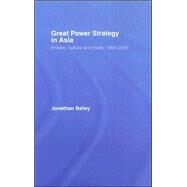- ISBN: 9780415404587 | 0415404584
- Cover: Hardcover
- Copyright: 12/6/2006
This book analyses the enduring themes underlying the strategic struggles in East Asia, beginning with the crucial event of the 1904-5 Russo-Japanese War. It aims to show how military history is relevant to understanding today's strategic problems, and how the most important areas of current affairs have their roots in often forgotten corners of military history. The book is divided into three parts. The first examines the explosive factors that led to war between Russia and Japan in 1904, and offers a ten-year perspective of the War, focusing on its consequences: cultural shock in "the West," re-alignment of Asian imperial geography and the failure to learn vital military lessons, as World War I approached. The second part offers a thirty-five year perspective of the war, as Japan repeated the essential strategic, operational and tactical ploys of its war against Russia in 1904 in its strike upon the USA in 1941. Allied victory assured the downfall of Europe's empires in Asia, with the USA inheriting muchof the old imperial legacy. The third part takes a centennial view of the Russo-Japanese War and finds that many of the broader issues identifiable in 1904-05 remain at the heart of today's strategic discourse: Western apprehension about the economic rise of Japan; the anomalies of an "American Empire;" tensions between Occident and Orient; the apparent new relevance of geopolitics; and the importance of demography in perceptions of global power. The book is multi-disciplinary, emphasising the linkages between imperial power-politics, military operations, cultural conflict and commercial rivalry. It is also the story of military innovation, the pathology of learning lessons from the experience of war, and the anticipated rise of Asian (Chinese) power a century after the false dawn of Japanese victory in 1905.







